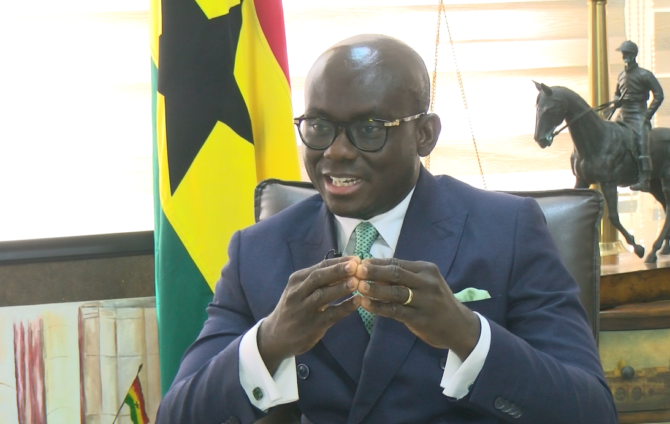Five NGOs sue govt over SML contract and seeks recovery of GH¢1billion to state
The five NGOs – the Centre for Democratic Development (CDD), Africa Centre for Energy Policy (ACEP), Ghana Anti-Corruption Coalition (GACC), Human Rights and Governance Centre and the Media Foundation for West Africa (MFWA) are seeking the recovery of over GH¢1billion paid to SML back to the state.
The law suit filed at the Accra High Court on August 22, 2024 and seen by Graphic Online is against SML, the Ghana Revenue Authority (GRA), the Attorney –General and a former Minister of Finance, Ken Ofori-Atta.
It is the contention of the five NGOs that the seven contracts awarded SML were illegal as they breached procurement laws of the country, while no assessment were conducted to ascertain whether the contract offered value for money for the country.
With regard to the procurement breaches, the plaintiffs averred that SML was not registered as a supplier with the Public Procurement Authority (PPA) before it were awarded the contracts as stipulated by the Public Procurement Regulations, 2022 (L.I 2466).
Again, the plaintiffs argued that although the Public Procurement Act, 2006 (Act 663) required PPAs approval for single sourced contracts, the GRA failed to seek such approvals before entering into the contracts with SML.
‘Plaintiff state that Act 663 as amended, further provides that a single sourced arrangement must receive prior approval from PPA. There was no PPA approval prior to 1st and 2nd defendants entering into the service contracts,” the plaintiffs stated.
It is also the case of the plaintiffs that the contracts awarded to SML violated the Public Financial Management Act, 2016 (Act 921) due to failure of the GRA to seek Parliamentary approval.
Reliefs
The five NGOs are seeking a declaration from the court that SML’s failure to register with the PPA as a supplier violated L.I 2466, while the failure to obtain PPA’s approval before the GRA awarded the contract to SML also violated Section 40 of Act 663.
Again, the plaintiffs are asking the High Court to declare the contract as void due to the lack of Parliamentary ratification in line with Act 921.
The plaintiffs are further asking for a declaration that the ratification of the contracts by the PPA on August 27, 2020, was illegal as the authority does not have the power to retrospectively approve contracts.
Background
President Nana Addo Dankwa Akufo-Addo in a letter dated December 29, 2023, appointed KPMG to conduct an audit of the contracts and related transactions between GRA and SML.
That was after a brouhaha and public outcry over the contracts, which some argued were not beneficial to the country, but was just an avenue to siphon money from the state
The overall objective of the engagement was for KPMG to review the work and activities of SML in relation to the contracts with GRA, and assess the propriety of procurement and contracting processes as well as the appropriateness of cost value analysis in the performance of the contracts.
In May 2024, KPMG released its report and recommended an “orderly resolution” in the contract between the GRA and the SML, including parliamentary approval.
“The contract did not receive parliamentary approval as required by section 33 of the Public Financial Management Act, 2016 (PFMA Act 921). Parliamentary approval should be sought to regularise the contract to meet the existing legal requirement, if practicable,” it said, as part of its recommendations.
The firm said although the orderly resolution approach was more accustomed to the financial services sector, it was being recommended for consideration in the context of the State’s contract with SML because it “prioritises a review of the existing contracts with the view to addressing noticeable complexities and areas of concerns in a mutually negotiated and acceptable manner”.
In settling for that option, the accounting and advisory firm said it considered the systemic impact, cost to the state, sustainability, complexity and deliverability, public trust and implications.
The report of KPMG’s investigation into the propriety of the state contracting SML to perform revenue assurances in some areas of the petroleum and mining sectors said the option was also based on the assumption that as of the time of reporting, the contracts were not void or voidable, but must receive parliamentary approval to make them enforceable.
“On the basis of the above, an orderly resolution could be used to address identified challenges with the contract Upstream Petroleum and Minerals Audit. These components of the contract cover major revenue sources to the State,” it said.



